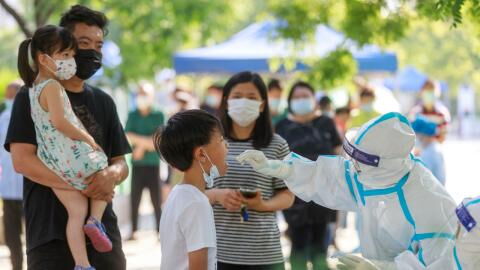The COVID vaccine may reduce your risk of catching the virus, but once you’re infected your ability to spread it on to another person remains the same as an unvaccinated carrier.
Discover our latest podcast
Vaccinated carriers
A recent study, published in the journal The Lancet Infectious Diseases, has found that the Delta variant, in particular, can easily spread from one vaccinated person to the other within household settings. Of the 621 household contacts that were a part of the study, 205 were infected with the Delta variant. 38% of those infected were unvaccinated, while 25% were vaccinated individuals. Dr. Anika Singanayagam, co-lead author of the study, explained:
By carrying out repeated and frequent sampling from contacts of COVID-19 cases, we found that vaccinated people can contract and pass on infection within households, including to vaccinated household members.
Their findings also revealed the people who were vaccinated and tested positive for COVID had gottentheir inoculation earlier than those who tested negative—supporting the theory that immunity does wane over time. Hence, authors have outlined that the only way to ‘increase population immunity’ is ‘via booster programmes and vaccination of teenagers.’
Understanding transmission
Furthermore, the study has given researchers imperative knowledge into how the virus has managed to circulate in highly vaccinated populations, such as the UK. Dr. Singanayagam added:
Our findings provide important insights into...why the Delta variant is continuing to cause high COVID-19 case numbers around the world, even in countries with high vaccination rates.
Currently, the country is facing a fresh wave of cases, with almost 300,000 reported in the last seven days. Hospitalisations are also stacking up, as 6,999 patients were admitted to medical facilities in the same time period.
But despite the seemingly dire situation, ministers are banking on vaccinations to slow down transmission in the UK—a strategy that many health experts believe are not sufficient enough to keep the virus under control over the winter.















